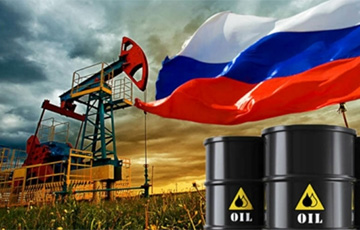Russian Oil Price Falls 25% Below Level Budgeted By Russian Federation
11- 7.04.2025, 19:59
- 24,748

Urals oil falls to $50 per barrel.
Due to the collapse of the global oil market caused by Donald Trump's trade war and OPEC+'s decision to further increase production, the price of Russian Urals oil fell to $50 per barrel. This is close to the minimums for the entire period of the war with Ukraine and almost $20 lower than budgeted for the current year.
According to Argus Media, on Friday the price of Urals oil with loading in the Baltic port of Primorsk was $52.76 per barrel, Bloomberg reports. This is 25% lower than the budgeted price of $69.7. At the end of last week, the global market experienced a collapse, as a result of which the price of Brent oil fell by 12.5% and ended trading at $65.58. On Monday, the price fell to $62.51 per barrel, then rose to about $63.5.
In March, Deputy Finance Minister Vladimir Kolychev said that the department sees the average oil price in 2025 closer to $60. As a result, according to him, the budget deficit could grow by 1% of GDP (0.5% of GDP is budgeted for this year). However, the price could be even less. In March, the average price of Urals was $58.99 per barrel, according to the Ministry of Economic Development, and the average price of Brent was $72.5 per barrel, according to LSEG. That is, the discount of Urals to Brent was $13.51, and if it is maintained, Russian oil could now cost about $50 or even less.
This is precisely the lowest level that has been observed since the beginning of the war unleashed by Vladimir Putin. In the first three months of 2023, the average monthly Urals price calculated for taxes was about $49 per barrel. But if it then rose along with world prices, now there are no significant reasons for optimism. “The scale of the sell-off suggests that the market is pricing in a significant drop in demand due to growing fears about a recession,” ING analysts write. Current price levels imply a decrease in average daily demand by 1 million barrels by the end of this year, as a result of which demand will not change by the end of the year compared to 2024, ING believes.
The Brent price will probably now fluctuate in the range of $60-65 per barrel — but this is without a deterioration in fundamental factors, BCS Express analysts note.
In March, even before the collapse of the world market, Russia had already collected 15% less oil taxes than a year earlier. According to Bloomberg calculations based on data from the Ministry of Finance, the budget, which consists of oil and gas revenues by about 30%, received 956.8 billion rubles due to slowing demand in China, a general decline in world prices as a result of increased production outside OPEC+ countries, and the consequences of President Joe Biden's “farewell” January sanctions on Russian oil.
In its February risk review, the Bank of Russia warned of the threat of a long period of low oil prices, as in the 1980s and 1990s. “After a period of high oil prices in 1974-1985, there were 18 (!!!) years of low prices,” the Central Bank's presentation said (quoted by Reuters, which reviewed the document).











